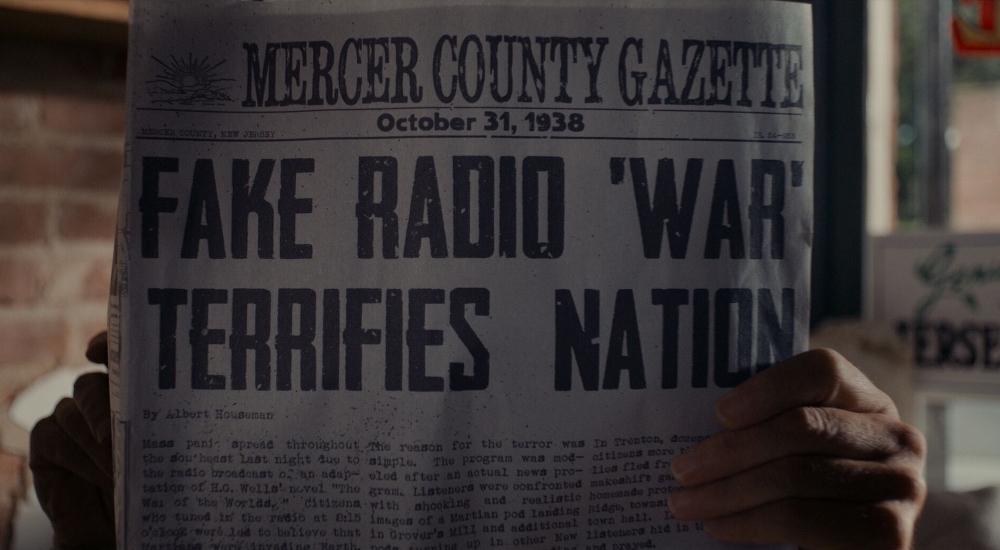“That German got the whole world on pin and needles.”
Set in 1938 during the height of tensions between the world and Germany, Jody Lambert’s Brave New Jersey offers a unique take on the aftermath of Orson Welles’ legendary War of the Worlds radio broadcast that claimed martians were invading America. Truth be told they weren’t. But no one though to tell the small town of Lullaby, New Jersey.
Boasting an ensemble of interesting community figures, Brave New Jersey successfully straddles the line between satirical social commentary and small town comedy. The infusion provides for a light-hearted tale of one town’s ambitious attempt to fight off the martian invasion. The only thing missing are the martians.
Caught within the scope of a timeless lens, Lambert’s period piece chronicles a series of events that take place within a single night. Utilizing a group of fairly uninteresting players, the story is able to make the most of the situation as you begin to see each react to the broadcast, reverting to their instinct as they attempt to prepare to fight those from another world.
Rooted behind Tony Hale’s near flawless performance as town mayor Clark Hill, the film bears a simple pace as we are slowly introduces to those who call Lullaby home.
Hill is a quiet loner who longs for the hand of a woman he can’t have, diligently looking after the citizens as he navigates his book of lists without much appreciation or notice. His interactions are what allow us to expand our knowledge of Lullaby, where strangers are welcome and no one’s a stranger. Though those who enjoy his presence appear to be few and far between.
Hill’s journey is comical, if not hilarious, as he finds himself thrust in the middle of an emergency meeting, proclaiming that the town is safe while standing in front of a cliché “Harvest Fest” banner - solidifying the important things in Lullaby. It is at this point that Brave New Jersey divides into a plethora of side stories - nearly one for each character.
Lorraine’s husband leaves her shortly after the broadcast, skipping off to spend one last night with the “other woman” while Peg triumphantly rises from a passive school teacher to a hardcore badass, mixing in with the men as she lends her muscle to the more labor intensive tasks. Meanwhile Reverend Ray is desperately looking for an answer within the pages of the Good Book, prompting his congregation to take on a rather unique mindset in regard to the approaching visitors. And one cannot forget the children. They have all gathered at the schoolhouse, spouting out “Old McDonald” versus as they wait out the forthcoming attack.
All of this is to say that Lambert splits the story in a million different directions, displaying many possible responses to the hoax that rocked the nation. Though none of them are independently earth shattering, they do come together to form an intriguing big picture - a big picture that is further enhanced by stellar music, pristine visual aesthetics and the unmistakable sense that you are witnessing everything as a bystander on October 30, 1938.

